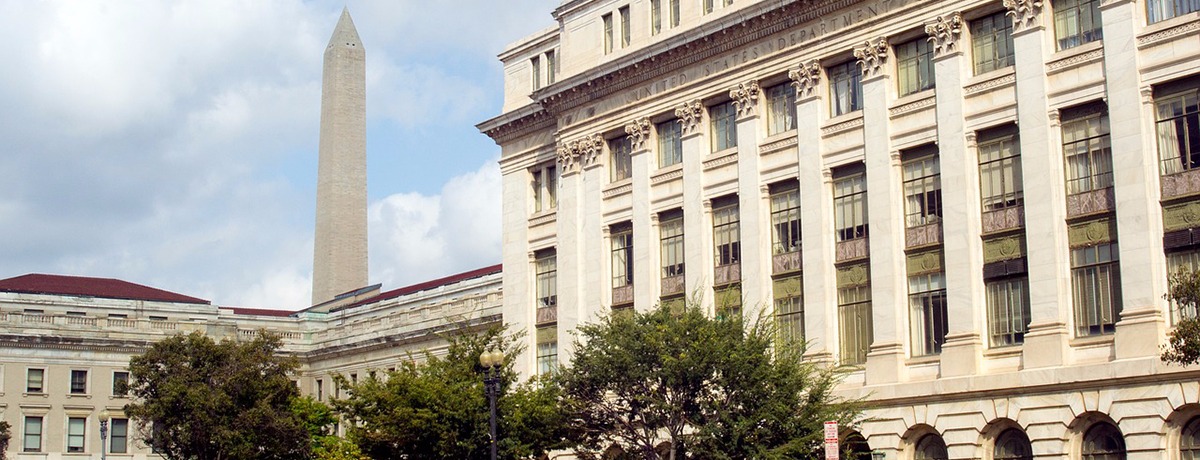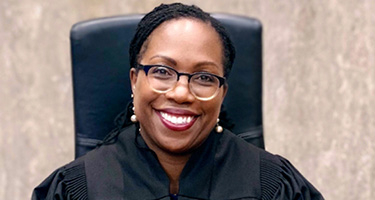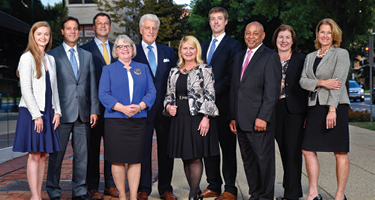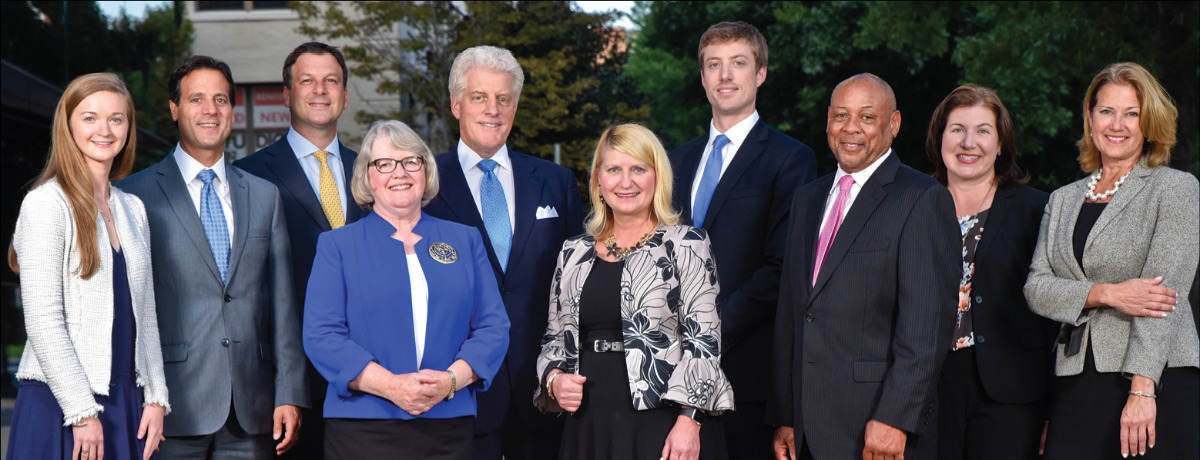On January 3, 2017, the 115th U.S. Congress opened with Republican majorities in both houses:
- U.S. Senate: 52 Republicans and 46 Democrats and 2 Independents who Caucus with the Democrats
- U.S. House of Representatives: 241 Republicans and 194 Democrats
On January 20, 2017, President-elect Donald Trump will be inaugurated as the 45th President of the United States, with an ambitious agenda set for the first 100 days, including the confirmation of his cabinet appointees and a yet-to-be-named Supreme Court nominee. Among his first acts, President-elect Trump is expected to undo many of the executive orders and "midnight regulations" of the Obama administration.
In the closing days of 2016, President Barack Obama adopted numerous federal regulations that may have served to advance and preserve his legacy. During his election campaign, Trump announced that, on his first day in office, his intention would be to roll back the executive orders adopted during the Obama administration and to seek repeal and replacement of other enactments such as the Affordable Care Act (or Obamacare). Most final regulations, however, may not simply be overturned with the stroke of the president's pen, but must be undone by Congress, the courts, or reverse notice and comment rulemaking.
Thus, in addition to confirming President Trump's cabinet nominations as quickly as possible, among the other early challenges for Congress will be to repeal and replace Obamacare and to invalidate en bloc the so-called "midnight regulations" and others adopted by the Obama administration or initiate a Congressional Review Act resolution of disapproval.
The first 100 days of the new Trump administration and the new 115th Congress will be busy and consumed by the following:
Senate Confirmations: Secretary of Labor-Designate Andy Puzder
Since his election, President-elect Trump has named his selections for cabinet seats, including on December 8, 2016, his choice of Andy Puzder to be the next Secretary of Labor. Puzder is the president and chief executive officer of CKE Restaurants, which has over 3,700 franchise restaurants, employing over 75,000 employees in the United States and 40 other countries. He has long been an advocate of job creation and an outspoken critic of government regulation of business, including the dramatic increase in the salary basis for exemption from overtime for “white collar” employees under the proposed overtime regulations. Puzder represents a dramatic shift from outgoing Secretary of Labor Thomas Perez.
Senate Democrats and labor unions have threatened opposition to Puzder's confirmation. Under current Senate rules, however, confirmation requires only a simple majority since then Senate Majority Leader Harry Reid (D-NV) pushed through a rules change to eliminate 60-vote filibusters of administration and judicial nominations, except for nominations to the Supreme Court of the United States. With a majority of 52 votes, Senate Republicans should be able to confirm Mr. Puzder even if all 48 Democrats vote against his confirmation. The Senate Committee on Health, Education, Labor and Pensions has scheduled Mr. Puzder's confirmation hearing for January 27, 2017.
Since Election Day, President-elect Trump and his transition teams (landing teams) have been hard at work vetting candidates for not only the cabinet, but subcabinet positions as well. Following Mr. Puzder's confirmation, we expect the announcement of critical subcabinet positions at the U.S. Department of Labor, including those of deputy secretary of labor; solicitor; assistant secretaries for policy, occupational safety and health, and labor-management standards; and administrator of the Wage and Hour Division, among others.
Turning Around the NLRB and EEOC
At the National Labor Relations Board (NLRB), President-elect Trump will be able to designate lone Republican Board Member Philip Miscimarra as the new chairman to replace current Democratic Chairman Mark Pearce. He will also likely nominate two Republican members to join Miscimarra and current Democratic Members Pearce and Nancy Schiffer, thus giving Republicans a 3–2 majority. However, the task of reconsidering the staggering number of blatantly pro-union decisions by the Obama Board, which by some estimates overturned 4,559 years of well-settled Board law precedent, will be slowed by current Democratic General Counsel Richard Griffin, whose term will not expire until November of 2017. A former union lawyer, Griffin for the remainder of his term will likely insist that the NLRB's regional offices adhere to and enforce the law established by the Obama Board, and will probably limit the opportunity to present cases to the new Trump Board for reconsideration. Since the NLRB is prohibited from issuing "advisory" opinions, the new Board will need to wait for "live cases" to rise up the pipeline. Thus, reversals of Obama Board decisions are not likely to come quickly.
At the U.S. Equal Employment Opportunity Commission (EEOC), current Democratic Chair Jenny Yang is now expected to serve out her term. President-elect Trump, however, will be able to designate Republican Commissioner Victoria Lipnic as chair and to nominate a Republican to fill the seat vacated by Republican Commissioner Constance Barker upon the expiration of Yang’s term in July of 2017. Barker's nomination for a new term was pending in the Senate when Congress adjourned, and it must be resubmitted in the current Congress.
Overturning Federal Regulations
On his first day in office, President-elect Trump is expected to overturn numerous executive orders dating back to President Obama's earliest days in 2009. Included may be executive orders mandating project labor agreements on federal construction projects, prohibiting reimbursement of labor relations costs for federal contractors, and setting mandatory minimum wages and paid family leave for federal contractors. Most importantly, he is likely to overturn Executive Order 13673 "Fair Pay and Safe Workplaces" requiring federal contractors and subcontractors to report "administrative merits determinations" (including alleged violations of 14 federal labor laws and equivalent state laws based on agency complaints prior to litigation and final judgment). These reports would need to be considered by federal contracting officials in the awarding of future federal contracts. Expect the so-called government contractor "blacklisting" rules and its implementing regulations and DOL guidance, already enjoined preliminarily by a court decision, to be among the first executive orders to be undone.
For its part, Congress is considering legislation to block "midnight regulations" issued by the outgoing Obama administration. During its first week in session, the new 115th Congress passed the Midnight Rules Relief Act (H.R. 21) sponsored by Representative Darrell Issa (R-CA) and the Regulations from the Executive in Need of Scrutiny (REINS) Act of 2017 sponsored by Representative Doug Collins (R-GA).
The Midnight Rules Relief Act amends the Congressional Review Act (CRA) to allow joint resolutions disapproving en bloc regulations submitted to Congress for review within 60 days of the end of a president's term. The CRA may only be invoked on individual regulations, not a series of regulations en bloc.
The REINS Act requires that all new "major regulations" (those with an economic impact of $100 million or more) be subject to an up-or-down vote by a simple majority in both houses of Congress and be signed by the president before taking effect.
Of course, Congress already can institute a resolution of disapproval under the CRA for individual federal regulations within 60 legislative days of taking effect (or for a "reset" period upon the opening of a new Congress for regulations that were submitted to Congress for review on or after June 13, 2016, prior to its adjournment sine die). The resolution of disapproval is not subject to filibuster and, if passed and signed by the president, the same or "substantially similar" regulation may not be reintroduced and re-promulgated in the future. The only federal rule ever to be disapproved under the CRA was the OSHA ergonomics standard issued in November of 2000, which was disapproved by the Republican Congress and signed by President George W. Bush in 2001.
Finally, of course, Congress may attach a "rider" to an appropriations or reconciliation bill (the latter of which is not subject to a Senate filibuster) that denies funding for the agency to enforce the regulation.
What Else?
In addition to the foregoing, Congress is expected to roll back agency regulatory powers by passing the Regulatory Accountability Act of 2017, H.R. 5 (Goodlatte, R-VA), which would repeal the longstanding so-called "Chevron deference" given to agencies’ legal interpretations. The legal standard originates from the Supreme Court's 1984 decision in Chevron USA, Inc. v. Natural Resources Defense Council, Inc. The legislation would eliminate Chevron standards frequently used by courts to uphold agency interpretations of federal regulations, as well as change agency rulemaking and strip agency "guidance" from having legal effect. In addition, the bill would require six-month delays of enforcement for new rules and mandatory litigation stays for "major rules" that would have an impact of $1 billion or more on commerce. The bill also would require agencies to calculate the direct, indirect, and cumulative effects of new rules on small business. A vote on the bill is expected in the House in January, over the strong opposition of organized labor and environmental groups that fear that the bill will curtail labor and environmental rule making.
Other Priorities—Will the Government Be Less Dysfunctional?
Newly-elected presidents often pursue aggressive first-year agendas that embody their most important policy goals enunciated during their election campaigns. President Trump will be no different, and he is likely to advance policy objectives fulfilling campaign promises on reversing government regulations as well as on immigration, trade, taxes, military spending, national security, infrastructure, and job growth. Taking on that laundry list of policy initiatives will be easier said than done. From the start of his administration, President Obama had difficulty overcoming united Republican opposition to his policy goals. For their part, Democratic leaders in the 115th Congress—led by Senate Democratic Leader Chuck Schumer (D-NY) and House Democratic Leader Nancy Pelosi (D-CA)—already promise to stand firmly against the confirmation of certain cabinet nominees and any Supreme Court nominee who in their opinion may be outside the mainstream of judicial philosophy and legislative policies they oppose. On a few issues, such as infrastructure, the Democratic leaders say they may seek bipartisan compromise. With a narrow 52-vote Senate majority, Senate Republicans will find it difficult to muster the 60 votes necessary to invoke cloture to end a Democratic legislative filibuster. Thus, expect congressional gridlock to continue, although possibly not to the same degree as over the past 12 years. Voters who are now seeking less gridlock and a less dysfunctional government may be disappointed at the pace of change.
Filibusters are meant to be dysfunctional, to be the Senate "saucer" that cools the "overheated cup" of House action by promoting extended Senate debate and deliberation. It is the main distinction between the House and Senate. Ironically, there were a number of Senate Democrats in the last Congress who supported a rules change to eliminate legislative filibusters along with the "nuclear option" advanced by then Senate Majority Leader Harry Reid (D-NV), which would have eliminated filibusters of administrative appointments and judicial nominations. Today, the legislative filibuster may be the Democrats’ salvation. Indeed, there may be some Senate Republicans who would consider eliminating the legislative filibuster. Where one stands depends on where one sits. However, Senate Majority Leader Mitch McConnell (R-KY) is unlikely to permit elimination of the legislative filibuster.
Still, the nuclear option against administrative and judicial nominations continues to stand. This means that President Trump's cabinet nominations should be confirmed unless Senate Democrats are able to convince three Republicans to join them in voting against the nominations. It also means that judicial nominations should be quickly confirmed on simple majority votes. Currently, there are over 100 unfilled judicial vacancies—including a number of critical federal circuit court seats. The federal appellate courts are important for labor and employment policy since, in our constitutional system of checks and balances, the federal circuit courts are the appellate courts that review government regulations promulgated by the executive branch and legislation passed by Congress. Apparently, the "nuclear option" was so effective in the 114th Congress that President Obama was able to quickly push through Democratic judicial nominations, and today there are only 4 of the 12 judicial circuits with majorities appointed by Republican presidents. Expect that to change and for the circuit courts to become more balanced.
Legislation, however, is still subject to the 60-vote Senate filibuster of bills passed quickly by the larger Republican majority in the House.
Thus, "change" may come to Washington, but perhaps not as easily or as quickly as some voters may anticipate.

































